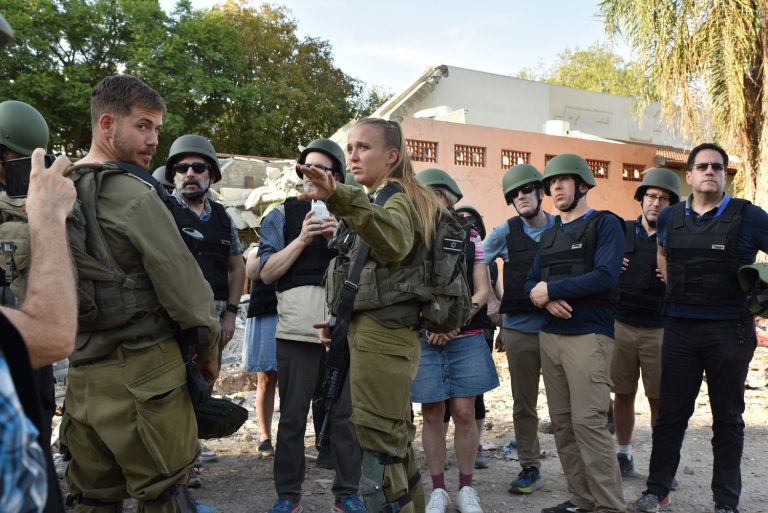
[ad_1]

When drafted, all IDF recruits provide samples of their DNA and fingerprints, in addition to having their teeth X-rayed. The army does not rely exclusively on identification made through a soldier’s twin dog tags kept in his combat boots and one worn on a chain around his or her neck.
According to “halacha” (Jewish ritual law), fallen soldiers are buried in a coffin in their blood-soaked uniform. They are not ritually washed in the “tahara” ceremony — the Jewish tradition of purification of the dead — nor are they wrapped in shrouds. The intention is that God should be angered by witnessing the fallen defenders among his Chosen People. Personal effects — like a cell phone, watch or wallet — are washed of blood and returned to the family of the deceased. Artifacts that cannot be cleansed of blood are buried with the body.
By contrast, civilian dead are ritually washed and wrapped in shrouds. As a rule, they are interred directly in the ground without a coffin.
While dental records allow straightforward identification of dead soldiers whose head is found, that information is often unavailable for civilians. Several dental offices in the city of Sderot near Gaza were destroyed, and with them their files.
Ritual washing is tasked to male and female reservists who have volunteered for the mitzvah (Torah commandment) of “chesed shel emet” (true kindness).
Female soldiers perform tahara for the hundreds of girls and women who were murdered. The team is working in shifts around the clock. Among them is Shari, an architect living in Jerusalem whose surname may not be released due to IDF security regulations. She volunteered for the unit when it was established more than a decade ago in order to ensure the modesty of female recruits killed in action was protected.
“We saw evidence of rape,” she said. “Pelvises were broken, and it probably takes a lot to break a pelvis … and this was also among grandmothers down to small children.”
Shari said her and the other volunteers received specialized training from the IDF, which prepared them practically and mentally to care for the bodies of the dead. She had not been called for active duty until the attacks.
“I’ve seen things with my own eyes that no one should ever see,” she said, describing how she took care of the dead women.
Many were still dressed in their pajamas with their heads shot off. Their bodies had been booby-trapped with grenades, and the remains bore evidence of extreme brutality.
Shari’s duties begin with opening the body bags to remove the dead person’s clothes, jewelry and any other personal possessions in order to return them to the families.
“The only color among the blood and dirt was their nails, beautiful manicures, painted the brightest colors,” Shari said, adding, “Their nails made me weep.”
The grisly tour was a chance for Jews around the world to see for themselves the massacre that was perpetrated by Hamas.
“We gathered this group of 33 Jewish communal leaders from across North America to witness the horrors our brothers and sisters have suffered,” said Stephen Daniel Arnoff, CEO of the Fuchsberg Jerusalem Center — a home for Conservative and Masorti Judaism in Israel — which organized the three-day solidarity mission.
The group included the first civilians to tour the devastated remains of Kibbutz Be’eri, where terrorists went house to house slaughtering residents. Wearing flak vests and helmets, clergy and communal leaders recited the El Malei Rachamim and Kaddish prayers for the dead as soldiers continued their search for human remains.
FJC is a home where leaders and seekers of meaningful Jewish life can find an authentic place in Jewish tradition to call their own. Located in the center of Jerusalem, it offers opportunities to study, pray and explore within an egalitarian and inclusive setting, creating multiple pathways for finding personal and communal meaning.
“We literally saw the blood of our people crying out to us from the ground,” Arnoff said. “It is our moral obligation to make sure that the world knows what happened there.”
[ad_2]
Source link